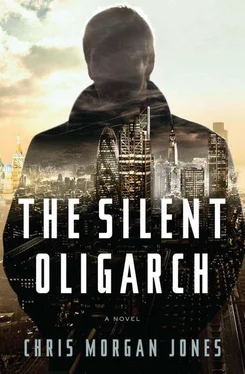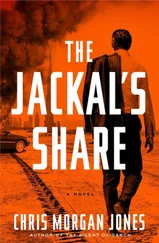BERLIN WAS WARM for October but Webster, misled by the forecast, had brought a coat, which was now annoying him. The more one carried the more irritating travel became. For a single night away he would take his briefcase, and in it a fresh shirt and fresh underwear, a razor and a toothbrush, a notebook, a pen and something not too heavy to read; never, if he could help it, a laptop. Gliding through the airport with no bag to wheel around like a helpless dependent made him feel light and purposeful, somehow more agile. Today the coat was weighing him down.
No matter. He would go straight to the hotel. Unusually, he had only one meeting in Berlin, and that he had not yet arranged. Through some mild subterfuge he had learned from Gerstman’s secretary that he would be in Berlin until Friday, after which he would be traveling for several weeks. Today was Tuesday. He had spent some time trying to find or engineer an introduction to him through some shared acquaintance, but without success. So now he had arrived with no plan, his only thought being that to be in Berlin would make it more difficult for Gerstman to decline a meeting.
Webster didn’t know the city—he had been here only once before, and that for a meeting at the airport with a client from Ecuador—and now he wasn’t really taking it in. He was preoccupied by what he wanted from Gerstman. To see Malin’s weaknesses; to understand Lock; to verify Knight’s theory. Ideally, to find a lead that would support Tourna’s allegations of massive corruption. As the thought came to him he knew it was ridiculous to expect so much. Perhaps the true value of talking to Knight had been to show him this was hopeless. He chided himself for failing to recognize early enough the one objection to the case that really mattered: that it was impossible. It was laughable to think that he and Hammer and a ragbag of failed spies and conflicted journalists posed any threat to a man like Malin. They were an instrument of Tourna’s vanity, and vain enough themselves.
But he would still try. You never knew. If Gerstman was nursing a grudge that hadn’t yet played out, if he saw the opportunity to take revenge, well, you never knew. It happened. What one man knows can bring down an organization. Every so often.
It was noon as they approached the western center of the city. He decided to have a look at his target first and check in to the hotel later, so he asked the driver to take him to the western end of Kurfürstendamm where Gerstman had his offices, on a side street just around the corner from the theater. Webster paid his fare and sat on a bench opposite the nineteenth-century building. With luck Gerstman would go out for his lunch; Europeans, sensibly, usually did.
With an eye on the door he went through his messages. Tourna had called when he was on the plane. He was going to be in London in a fortnight’s time and wanted to discuss progress. If there wasn’t any movement by then, thought Webster, that might be the time to stop. The very thought made his spirits sink.
At a quarter past, people began leaving the building in ones and twos. Webster hoped that he would recognize Gerstman from his picture; he had no idea of his height or coloring. A little after half past, a tall, rather sleek man appeared, dressed in a black suit, white shirt, and dark blue tie; this was Gerstman. Walking with him was someone shorter and broader whom Webster recognized as Gerstman’s partner, Prock. Webster followed them at a distance of perhaps twenty yards. The two men were walking briskly enough, and talked all the while. After five minutes they went into an Italian restaurant, not particularly smart, and there Webster left them, returning to his bench.
Exactly an hour later Gerstman and Prock returned. Webster waited five minutes and then called the main Finist office number. He spoke to the receptionist, then to Gerstman’s secretary; he explained that his name was Benedict Webster, that he was calling from a company called Ikertu Consulting, and that he would like to speak to Mr. Gerstman about a subject of shared interest. There, he thought, now we’re out in the open. She told him that she was very sorry but Mr. Gerstman was not available. Had he gone out? Yes he had. When would he return? She couldn’t say. Webster thanked her and hung up.
Finist’s number was Berlin 6974 5600. Webster dialed 6974 5601 and reached a fax machine. 5602 rang for a while and diverted to Prock’s secretary. He hung up and dialed 5603.
“Gerstman.”
“Herr Gerstman, this is Benedict Webster. I work for a company called Ikertu Consulting. I was wondering whether—”
“How do you have my direct line?”
“I was wondering whether I might talk to you for half an hour.”
“I don’t talk to people I don’t know,” said Gerstman, and hung up.
Webster dialed the number again. Gerstman picked up the phone on the first ring and immediately put it down again.
Webster looked at his phone, raised an eyebrow, and stood up. It was a short walk to his hotel. He left his briefcase and coat there and wandered out to find lunch.
At four o’clock he took up his station on the bench, now in sun, and watched the Berliners going about their business. He found them difficult to place: in London and in Moscow he could read fluently the signs that suggested what a person might do, where he might live, what he might hold important—the cut of a suit, the quality of a shoe, the newspaper carried, the accent spoken, the unconscious gait—but here the language was different and the people, he began to suspect, less easy to classify. These observations kept Webster occupied for a while but by five the offices were beginning to empty and his thoughts to stray, despite himself, to Inessa.
He had met her first in Rostov, in the south of Russia, where they were both reporting on strikes that had spread over the summer from the far east. They had talked on the plane from Moscow and driven together to the mining town of Shakhty, Inessa railing with indignation against the treatment of the miners, some of whom hadn’t been paid for six months. Her round face was cropped with thick hair cut short, as black as her eyes, and she walked everywhere at speed, almost at a march.
After Rostov they saw each other often in Moscow, found themselves from time to time in the same remote hotspot, helped each other with sources and ideas. Inessa would feed him stories in the hope they would find their way into The Times, and sometimes they did. She talked about founding her own magazine, and told him that he must find her some wealthy foreign patrons so that together they would transform Russian journalism. He met her friends and three months before her death had gone to her wedding in Samara, where she had grown up.
Inessa, he came to realize, was what he had gone to Russia to find: in among all that furious and chaotic change she had been a constant of anger, courage and hope. So long as it had people like her, he had thought, Russia might be all right.
She was the reverse of Malin, as if they had been created as opposites, and to bring him into her narrative made such tempting sense. Instinct insisted that he belonged there, and logic agreed. Among all the candidates for her murder he was the only one with no reputation. He was already more powerful than the others, destined for greater things, but his name was not known and his project still the greatest of secrets. None of Inessa’s enemies would fear being caught; Malin was the only one who would fear being suspected. And so he broke with tradition. Kill a journalist in Russia and it will be clear to all that she died for her work; kill her in Kazakhstan and it will fade away as a freak event. It was a blind, and Webster himself, he had always suspected, the means by which the trick had been validated: why have him present at her death unless to have him write and talk about it afterward?
Читать дальше












